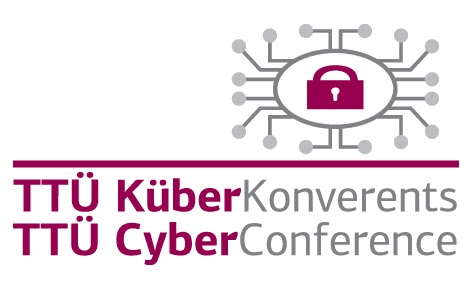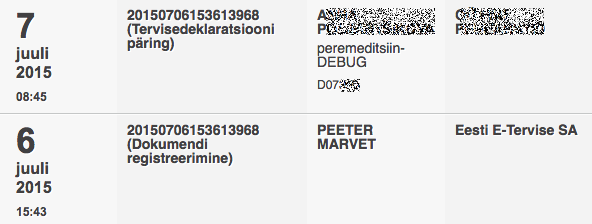
Conference agenda:
10:00-10:30 Registration, cofee and cookies
10:30 Opening words by TUT rector Jaak Aaviksoo;
Kusti Salm, Ministry of Defense and Maarja Kirtsi, Estonian Internet Foundation
10:45-13:00 “Does Estonia needs cyberinsurance?”Moderator: Anto Veldre
10:45 Cybersecurity Challenges. Lauri Luht, RIA
11:15 In the feature everything will be better? or more horrible? Aare Reintam, NATO CCD COE
11:45 Kalev’s active and professional activities with technological means to preserve health
12:00 Is self-driving cars a real danger to society? Krister Kalda, TUT Mektory
12:20 Cybercrime does not cry on arrival! Karen K Burns, CGI
12:40 To buy cyber insurance or not? Helen Evert, IIZI Kindlustusmaakler AS13:00-14:00 Lunch
13:10-13:35 CyberSecurity TV-game show at American corner with Ralph Echemendia, Seguru and Marily Hendrikson, Startup Estonia (ENG)
13:40-13:55 MWB LAB Launch@TTÜMektory
14:00-15:10 Parallel sessions on various topics:
• Main hall: Human factors & OSINT by Jenny Radcliffe, Host of The Human Factor Podcast, UK & Lisa Forte, Red Goat Cyber Security, UK (Cyber Security SummerSchool) (ENG)
• How to build a cyber defense plan for your institution? Raido Orumets, BCS Training. Room: 108 Labor Market for Business Models.
• How to learn to think in the way rafter thinks and protect yourself from evil eyes? Peeter “Technocrat” Marvet, Zone Media resident hacker. Room 111 “Learning to Play”.
• Failure of one rafter due to the digital forensics, Toomas Lepik, TUT and How to hack contactless cards? Kadri Lenk, Eesti Energia and Raido Roben, Datanor. Room 125 Logistics.
• Ransomware simulation and MWB LAB launch@TTÜMektory, Malwarebytes (ENG). Room 109 and 209 – MWB Labs.15:10-15:20 Kalev Kahoot game (ENG) (please be ready! https://kahoot.it/)
15:20-16:00 Main hall: Panel Discussion on Maritime Cyber Security (ENG).
Moderator: Kieren Nicolas Lovell, University of Cambridge, UK. Panelists: Adrian ‘Tel’ Venables, Lancaster University; Jenny Radcliffe, Host of The Human Factor Podcast, UK; Jeff Moulton, Stephenson’s National Center for Security Research and Training and the Transformation Technologies and Cyber Research Center at Louisiana State University, USA; Marina Martinez (TBC), The Spanish Office for Science and Technology (SOST), Spain.16:00
• CyberSpike Competition Award Ceremony (EST / ENG)
• Cake
Links:
https://ttu.ee/ttu-korraldab-12-juunil-esimest-kuberkonverentsi-eestis
https://sites.google.com/view/kyberolympia/reeglid-2018/konverents-2018
